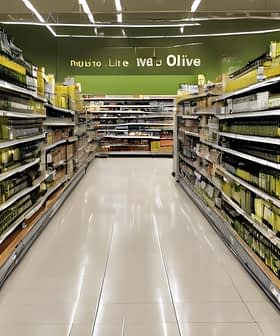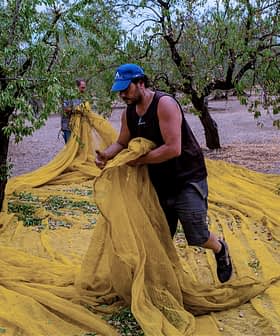EU Measure Spares Monumental Trees as New Xylella Cases Emerge
New measures allow replanting trees in the infected area and allow the sparing of uncontaminated monumental olive trees. Meanwhile, new cases of infected plants have appeared further north.
The European Union approved new measures for the management of areas contaminated by Xylella fastidiosa (Xf). After hearing requests by Italy, the Standing Committee on Plants, Animals, Food and Feed (PAFF Committee) during its last meeting in Brussels approved the text of the European emergency measures to prevent the spread of the bacteria.
The new plan provides for:
- The possibility to replant trees in the infected area, with the exception of the northernmost 20km (12.42mi)
- The right to not raze uncontaminated monumental olive trees within 100m (328ft) of any plant verified to be infected, on condition that they are protected by the spittlebug vector of Xf and regularly inspected
- The option of free handling the three vine varieties Negroamaro, Primitivo and Cabernet Sauvignon (which were found to be not susceptible to Xf) from the demarcated area
The new measures also provide for the strengthening of inspections of European production sites of olive trees and other plant species that can be affected by the bacteria such as oleander and almond trees.
See Also:Articles on Xylella Fastidiosa
The decision was the result of persistent diplomatic work over the past few weeks in Brussels, said Minister of Agriculture Maurizio Martina, who added that the protective measures applied to imports will provide greater safety guarantees.
The adoption of new rules occurred shortly after the detection of new infected plants in in the province of Brindisi. According to diagnoses by the Phytosanitary Observatory of the Apulia Region, since the beginning of October the bacteria was found on fourteen olive trees near the Northern limit of the buffer zone: twelve in the area of Ostuni and two others in Ceglie Messapica and Casalini, a district of Cisternino.
This suggests that that the disease has headed north and the buffer zone should be extended to the southern part of the province of Bari.
According to EU rules, “if the presence of the specified organism is confirmed in the buffer zone, the delimitation of the infected zone and buffer zone shall immediately be reviewed and changed accordingly.”
Furthermore, some olive trees are located at elevation 300m (984ft) above sea level, which is the highest altitude so far associated with the presence of Xylella. This is one of the reasons supervisory authorities and scientists are pushing to find effective solutions.








